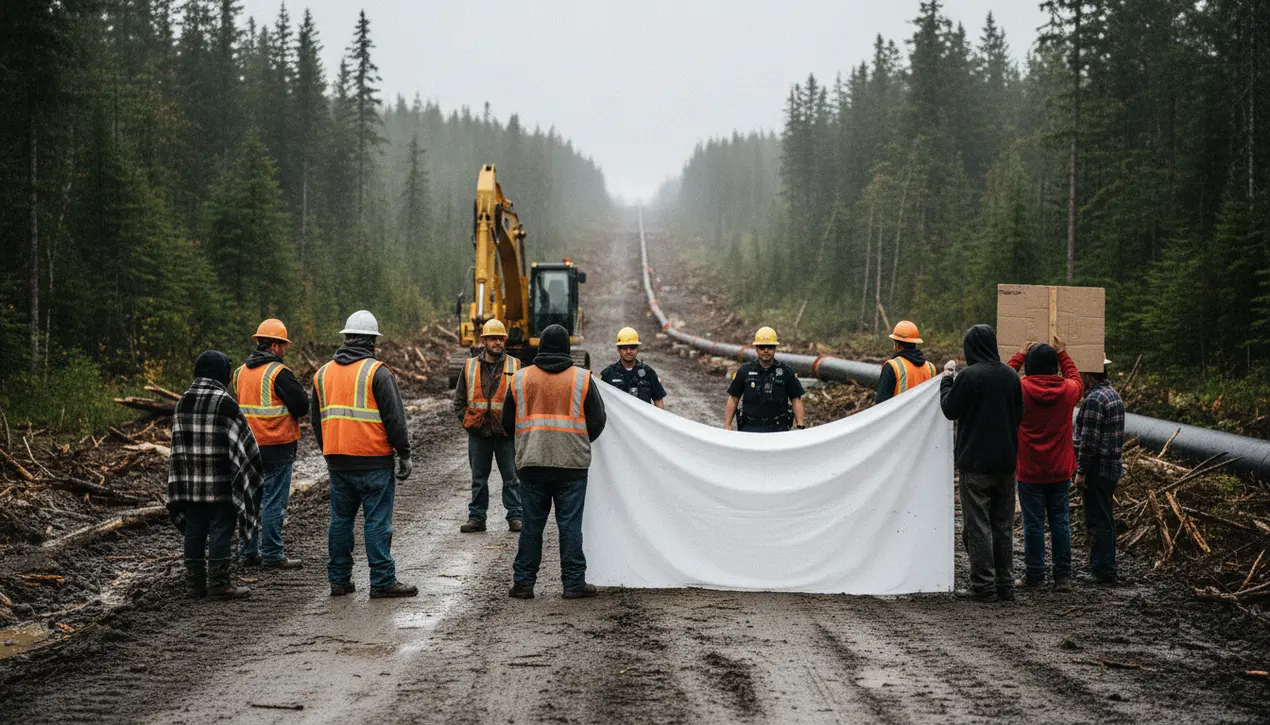
PoliticsdiplomacyBilateral Relations
Canada's Unity Tested by Oil Pipeline Dispute
RO
Robert Hayes
2 hours ago7 min read
The foundational unity of the Canadian federation is facing a profound stress test, one that echoes the perennial tensions between regional economic imperatives and national cohesion. At the heart of this contemporary crisis lies a proposed oil pipeline, a concrete and steel artery intended to carry Alberta's landlocked bitumen to tidewater, thereby unlocking global markets and fulfilling the nation's long-held ambition to cement its status as an energy superpower.Yet, this very ambition has cleaved a deep chasm between provinces, pitting Alberta's economic lifeline against the environmental and sovereignty concerns of British Columbia in a political standoff that threatens to unravel the delicate fabric of Confederation. This is not merely a dispute over infrastructure; it is a battle over vision, pitting the economic engine of the prairies, whose fortunes rise and fall with the price of crude, against a coastal province that sees its future in a greener, more sustainable economy and fears the catastrophic consequences of a coastal spill.The federal government in Ottawa finds itself in the unenviable position of referee and participant, torn between its constitutional authority over interprovincial trade and commerce and the political firestorm ignited by imposing a project on an unwilling region. One is reminded of historical parallels, not unlike the tensions that preceded the patriation of the constitution in 1982, where provincial premiers squared off against a determined federal government, though the stakes today are framed less by pure legal sovereignty and more by economic survival versus environmental security.Expert commentary from constitutional scholars warns that the precedent set here could either reinforce federal authority or embolden provinces to wield new veto powers over projects with cross-border implications, thereby Balkanizing the national economy. The potential consequences are stark: should the impasse harden, we could witness a resurgence of Western alienation sentiment in Alberta, potentially fueling separatist movements that argue the federation is an impediment to their prosperity, while simultaneously empowering a bloc of provinces to challenge federal jurisdiction on other contentious issues, from carbon taxation to healthcare transfers.The pipeline, therefore, is more than a piece of infrastructure; it is a symbol of a nation at a crossroads, grappling with its identity in an era of climate change and global energy transition. The resolution, or lack thereof, will define Canada's political and economic trajectory for a generation, determining whether it can reconcile its competing regional identities into a coherent and functional whole or succumb to the centrifugal forces that have historically tested all great federations.
#Canada
#oil pipeline
#interprovincial feud
#national unity
#energy superpower
#featured
Stay Informed. Act Smarter.
Get weekly highlights, major headlines, and expert insights — then put your knowledge to work in our live prediction markets.
Related News
Comments
Loading comments...
© 2025 Outpoll Service LTD. All rights reserved.